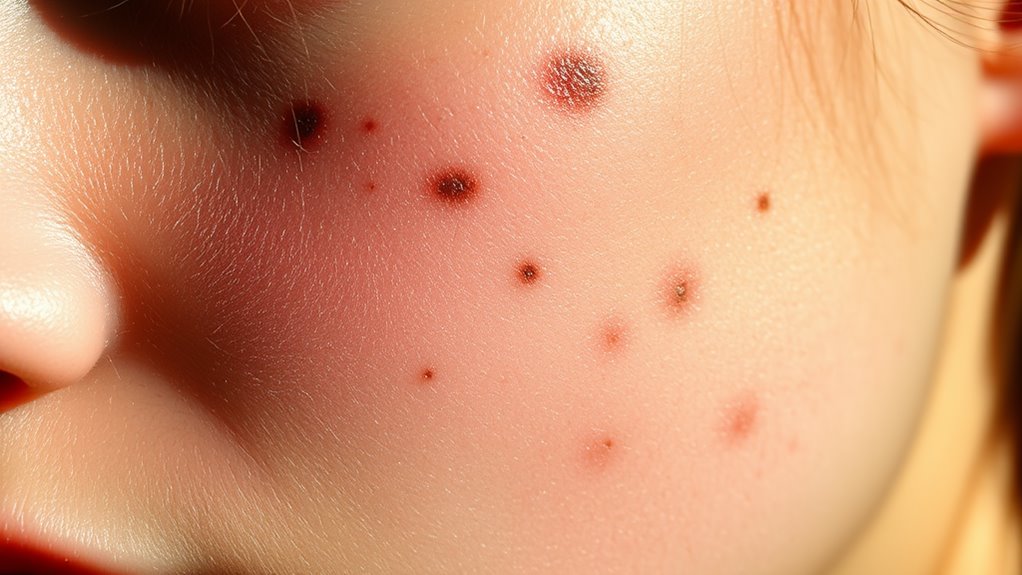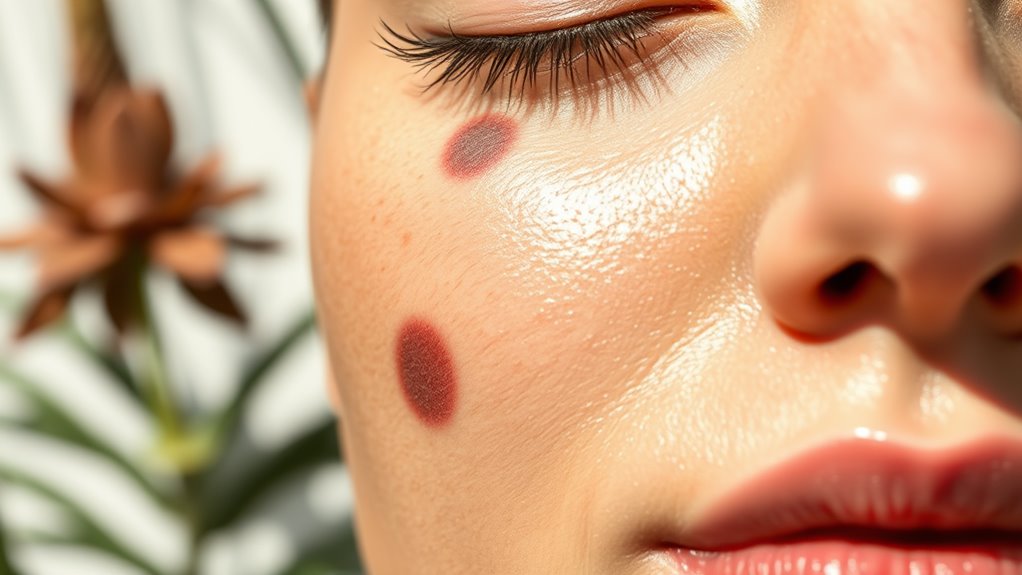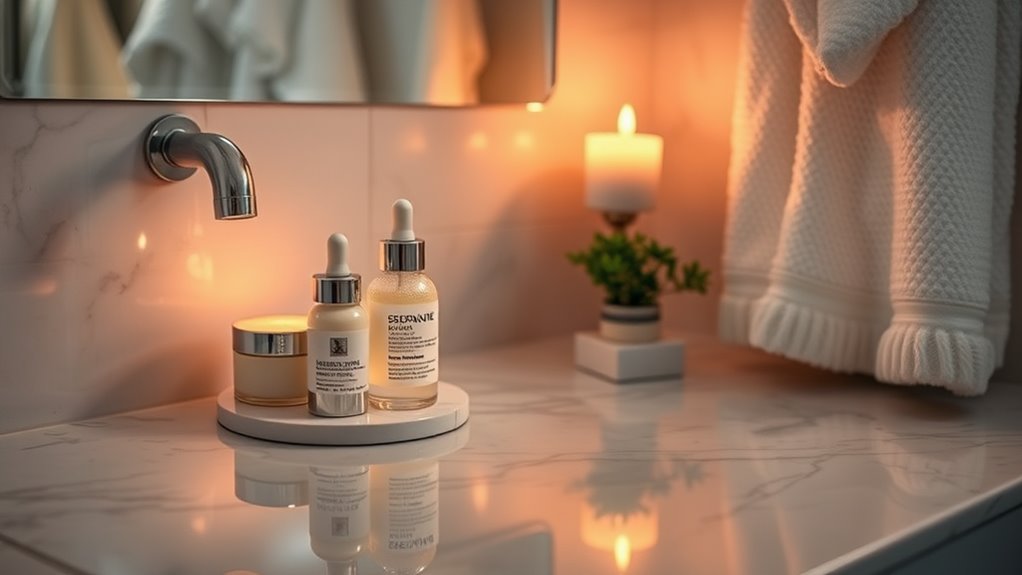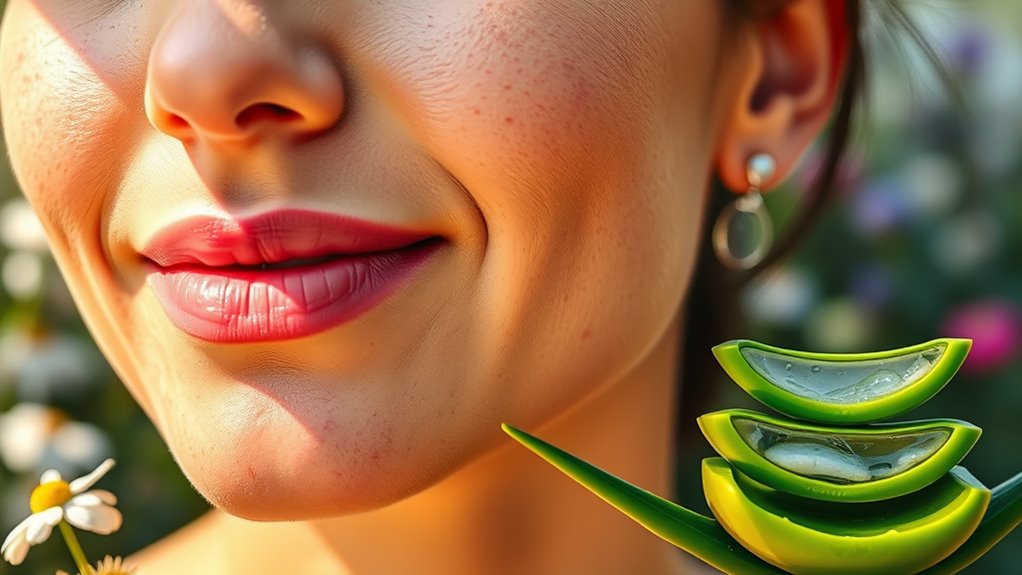Acne Scars or Dark Spots. Here’s How to Tell and Treat Both
When it comes to skin concerns, distinguishing between acne scars and dark spots can be tricky. Acne scars leave textured marks on your skin, while dark spots present as flat, discolored patches. Each requires different treatment approaches for effective results. Understanding these differences is vital for targeting your specific issue. So, how do you identify what you’re dealing with, and what solutions can truly help? Let’s explore the details.
Key Takeaways
- Acne scars are textured marks caused by collagen damage, while dark spots are flat discolorations from excess melanin production.
- Look for uneven skin texture to identify acne scars; dark spots appear as flat, discolored patches.
- Microneedling, chemical peels, and laser therapy are effective treatments for acne scars.
- Topical agents like Vitamin C, niacinamide, and hydroquinone can help lighten dark spots.
- Proper identification of these skin conditions is crucial for selecting the appropriate treatment.
Understanding Acne Scars vs. Dark Spots
Have you ever looked in the mirror and wondered why those marks on your skin won’t fade? You’re not alone. Many people grapple with the difference between acne scars and dark spots, and recognizing this distinction is vital for effective treatment.
Acne typically leaves behind scars—textured marks that can be pitted or raised. These scars develop when inflammation damages the skin’s collagen, leading to a permanent change in skin texture. On the other hand, dark spots, or post-inflammatory hyperpigmentation, often arise after a breakout, caused by excess melanin production. They usually sit flat on the skin’s surface and can fade over time.
To master your skin’s healing process, you need to identify what you’re dealing with. If you’re facing uneven skin texture, you’re likely looking at acne scars. In contrast, if you see flat, discolored patches, you’re dealing with dark spots. Knowing the difference will guide your treatment choices.
For acne scars, consider options like microneedling, chemical peels, or laser therapy, which target the skin’s texture and promote collagen production. Conversely, dark spots can often be treated with topical agents containing ingredients like vitamin C, niacinamide, or hydroquinone, which help to lighten pigmentation. Understanding the distinct characteristics of each condition can further aid in selecting the most effective treatments.
You don’t have to be at the mercy of your skin. By understanding the nuances between acne vs dark spots, you can take actionable steps to address them.





